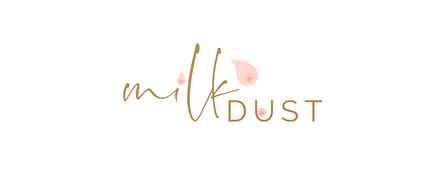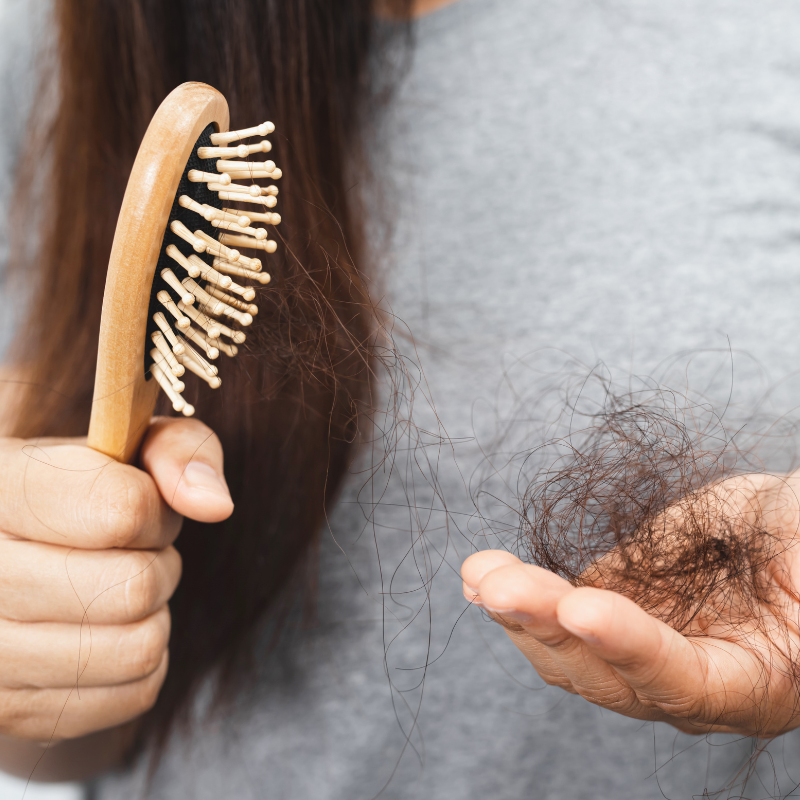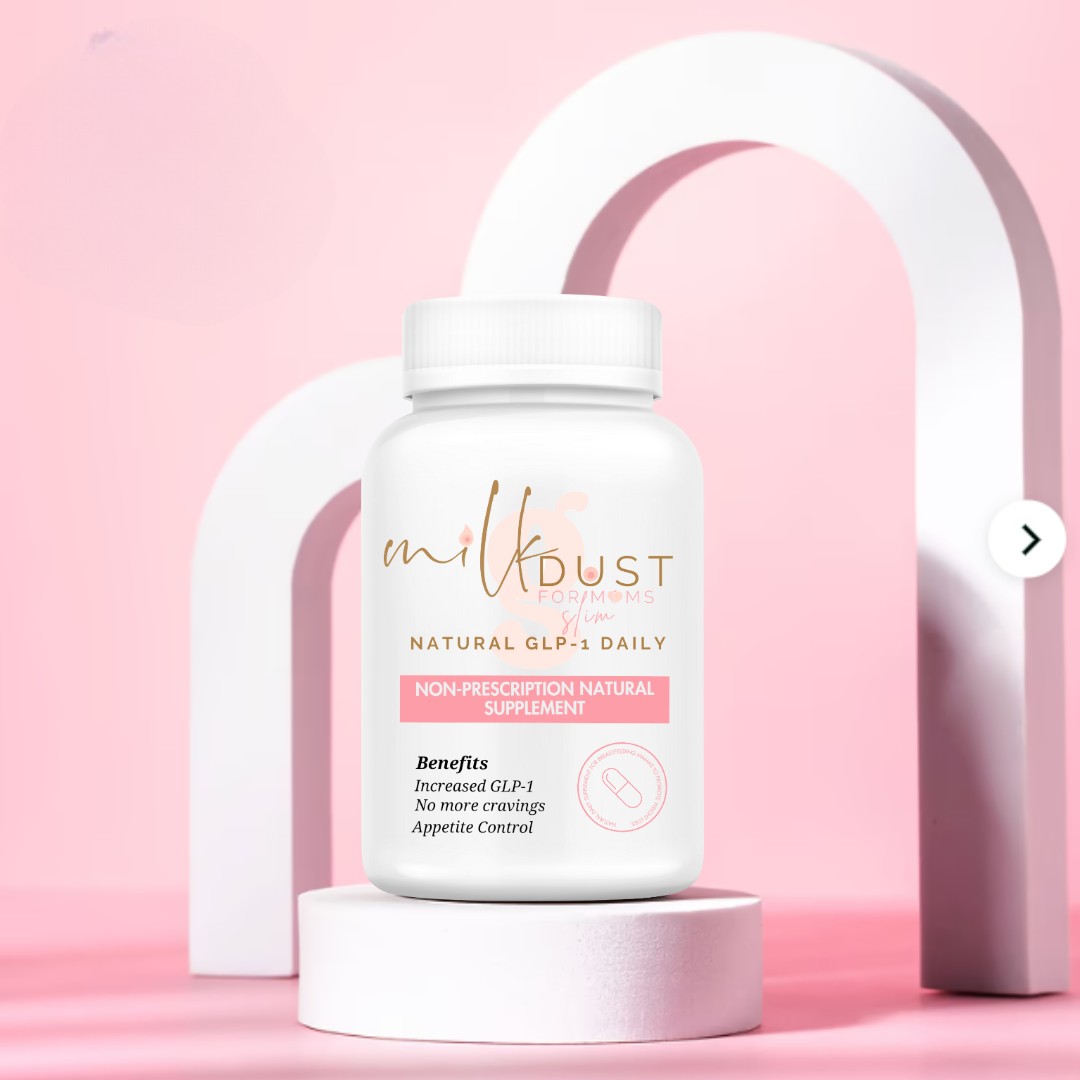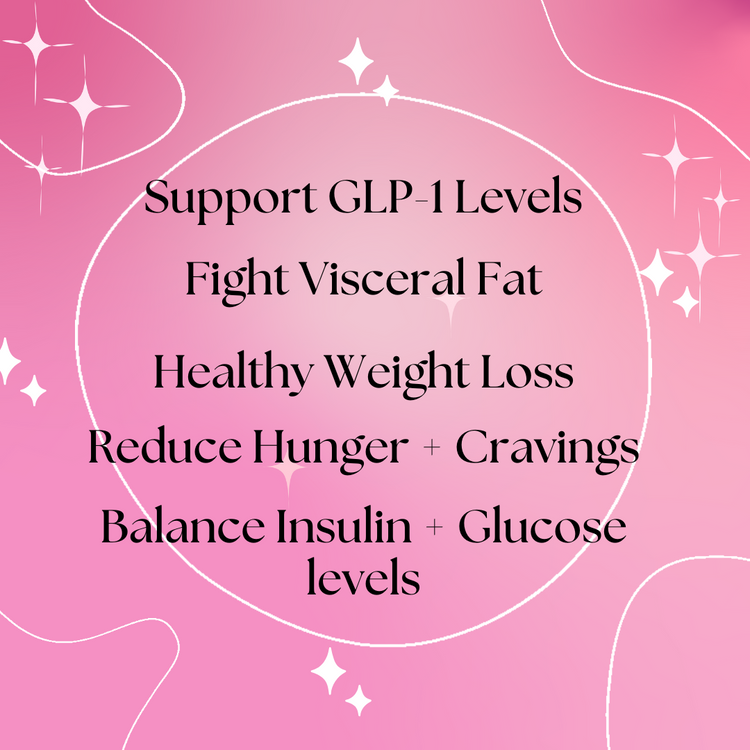Postpartum hair loss is very common, and it has a lot to do with the hormonal changes happening in new moms. Depending on your hormone levels and hair health, you could start losing your hair shortly after birth, or it could be months and months after birth. There are some key vitamins that can help prevent hair loss, and even promote hair growth in new mothers. Prenatal vitamins are a big help, but they are formulated more for overall pregnancy nutrition. Key vitamins, like b vitamins, vitamin e, folate and vitamin c can encourage healthy hair growth. Hormone fluctuations in conjunction with low nutrient levels can cause postpartum women to lose a lot of hair. Let's discuss the key nutrients you can take to get thicker hair and new hair growth postpartum.
Why does your hair fall out postpartum?
It is estimated that at least 50% of women will experience some degree of postpartum hair loss. The term for hair loss postpartum is telogen effluvium. Sadly, you will probably experience a full head of luscious and thick hair during pregnancy, only to watch clumps of hair fall out after baby arrives. Here is exactly what is going on with the growth cycle and hormones.
The growth cycle and postpartum hair loss:
The hair cycle involves the growth phase, resting phase, and falling out phase. This is a natural process despite being postpartum, but often times there is a falling out phase during postpartum. When the falling out phase is combined with falling estrogen levels, the fall out can be more extreme than normal.
Estrogen levels and hair loss
During pregnancy, estrogen levels are very high. Shortly after baby is born, estrogen levels drop significantly. The lower estrogen levels sends your hair into the resting phase (and they were in growth phase during pregnancy). The resting phase typically lasts about 3 months, then the falling out phase begins.
Anemia contributes to hair loss:
Postpartum women often times are low in iron stores from pregnancy, birth and more. Anemia can cause hair loss, and it is not uncommon for low iron stores during pregnancy to continue into postpartum. Eating foods high in vitamin c will help with iron absorption, also plant-based sources like chlorella and spirulina can be super helpful and potent for increasing iron levels.
Nutritional deficiencies:
Nutritional deficiencies play a major role in postpartum hair shedding. With hormones all over the map, and increased nutrient needs, your body can be left craving essential nutrients. When your body is lacking the proper nutrients, it is left in a survival mode, rather than a build mode. Your body can't enter the regrowth phase if there aren't the proper nutrients to support it. Next is a list of the key nutrients you need to ensure you'll lose less hair in the fall out phase, and grow more in the regrowth phase.
Milk Dust Mermaid Hair provides all the nutrients below (and more!), and works like MAGIC when combined with the protein powder. If you are experiencing massive hair loss, grab the perfect hair combo of Milk Dust protein and Milk Dust Mermaid hair gummies. You will be surprised at how fast these supplements work, and not just on your hair! Your skin and nails will thank you too!
Mermaid Hair is coming soon, join the waitlist now to ensure you get some!
Key nutrients that prevent postpartum hair loss:
There are some key nutrients that can prevent postpartum hair loss no matter how many months postpartum you are. Essential vitamins and a healthy diet go a long way to creating healthier hair. Here is your list of nutrients you need to take now, so you can prevent hair loss or bring your hair back.
Vitamins A, C, D, E:
These vitamins are essential for helping with hair growth. Vitamin c helps with absorption of iron, which can resolve some iron defeciencies and low iron stores from pregnancy. Vitamin A plays a key role in cell growth, which is essential to hair growth. Vitamin D helps stimulate the hair follicles, so they can enter the growth phase, rather than stay in the fall out phase. Low levels of Vitamin D have been linked to alopecia, so getting some sunshine and supplements with Vitamin D is essential to stopping your hair from falling out.
Vitamin E is also an antioxidant that is linked to positive hair growth in studies. These four vitamins are big players in nourishing your body postpartum, as well as encouraging your hair return to be better than ever during the postpartum period.
Biotin:
Biotin is a B vitamin, as well as a protein source that is known to stimulate karatin production in hair. Keratin is important to stronger hair, which makes it less prone to fall out. It can also help if you have fine hair, so it is a bit stronger and less likely to break off. Breastfeeding also increases your needs for Biotin, so this is a great nutrient to add to your diet for preventing hair loss.
Vitamin B5 (pantothenic acid)
Another B vitamin Vitamin B5, also know as calcium pantothenic acid is a vital vitamin for a healthy hair. It helps strengthening and nourishing hair follicles to promote healthy hair growth and prevent hair loss. It works with other nutrients to help rebuild the hair shaft, making hair stronger and healthier.
Folate (vitamin b12):
Folate is an important nutrient, als a B vitamin, that helps with cell creation. According to Dr Chaturvedi, folic acid helps to promote hair growth, add volume and even reduce the rate of premature greying—it does so by amping up the body's cell production processes. Folate can also go by folic acid, which is the synthetic form of folate. Milk Dust uses L-methylfolate, which is the methylated version that is easier to absorb for many women.
Zinc:
Zinc is a powrful key nutrient for preventing hair loss. Zinc plays an important role in hair tissue growth and repair. It also helps keep the oil glands around the follicles working properly. Hair loss is a common symptom of zinc deficiency. Studies show resolving zinc deficiency with supplementation may reduce deficiency-related hair loss(source).
Protein:
Eating enough protein is key to keeping your hair going strong. Protein is a key macro nutrient in a balanced diet and plays a major role in keeping your hair, skin and nails healthy. Milk Dust protein is specially formulated for increasing your milk supply, as well as helping you lose weight. It tastes amazing, and helps reduce sugar cravings while keeping your blood sugar stable. Our patent-pending, propietary blend is made in the USA and uses the highest quality ingredients.
These are the key nutrients that are essential to preventing and reversing postpartum hair loss. You can reduce the amount of hair you lose, and encourage regrowth just by ensuring your body has all the key nutrients it needs. The good news is that fixing your nutrient intake can also help balance your hormones even more. This targets the other contributing factor to hairl loss - hormones. If you are prone to your hormones being out of balance, targeting your nutrition and blood sugar levels is a great place to start.
There could be underlying factors involved in your hair loss. One key issue could be your thyroid. If you work on your nutrition and find yourself with massive hair loss, talk your doctor about getting your thyroid tested.
JOIN THE MERMAID HAIR WAITLIST!









